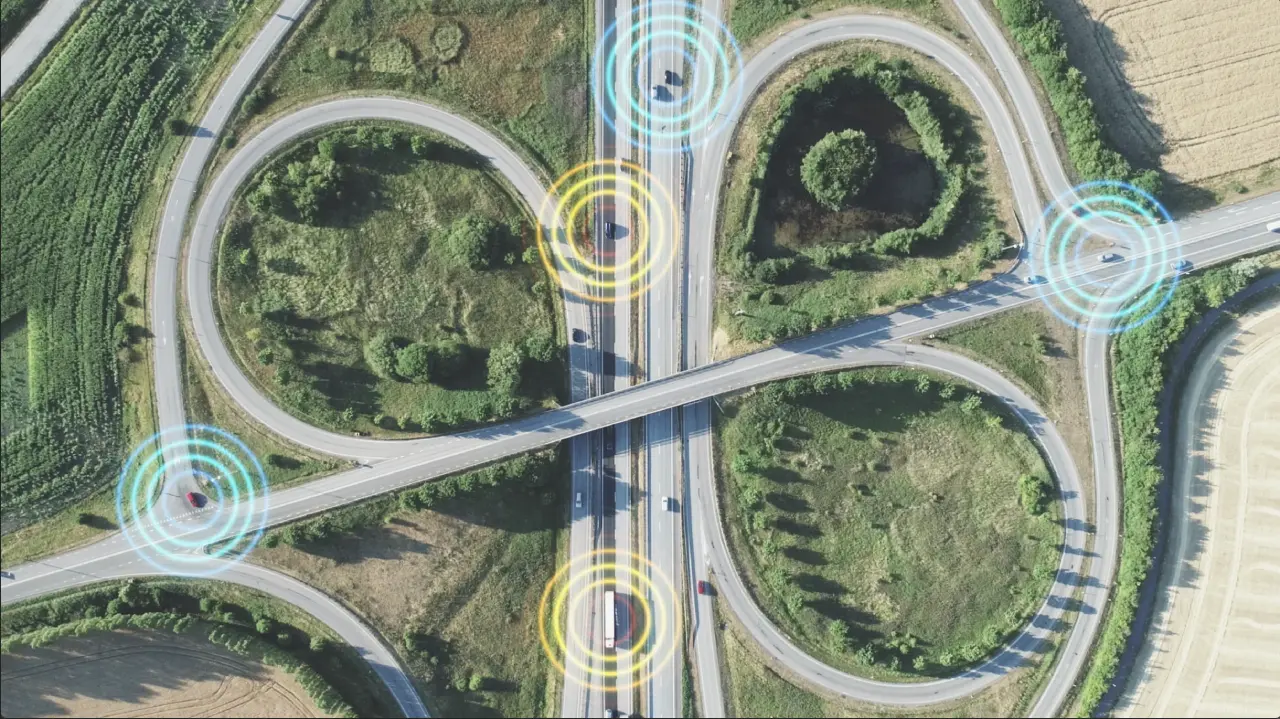Industry Knowledge
Fast Track to Driverless: Today’s Trends and the Future of Autonomous Vehicles
The future of autonomous vehicles is a rapidly evolving landscape. What key developments should industry players be aware of to stay ahead of the curve?
The Autonomous Vehicle (AV) market is accelerating at breakneck speed. On the fast lane to growth, it’s projected to reach $5 trillion in 2031, with a CAGR of 36.3%. Despite being set back by the pandemic, the future of autonomous vehicles is poised to change the way we move in a huge way.
Now, it’s a race to the top—with household names like Tesla, Toyota, and Ford maneuvering to a larger market share and shaping the future of autonomous vehicles. To get a clearer picture of what the future of autonomous cars will look like, take a close look at today’s autonomous vehicle trends.
Autonomous Vehicle Trends: 2023 and Beyond
1. Artificial Intelligence
- Another key trend shaping the future of autonomous cars is Artificial Intelligence (AI). AI in cars utilizes deep learning technology to continuously improve its performance and make better decisions based on experience, resulting in safer, smoother, smarter, and more efficient rides. Whether it assists the human driver or completely replaces them, AI plays a critical role in improving autonomous vehicles. AI is one of the significant drivers of level-4 and level-5 autonomous vehicle development. Safe and smooth all-weather autonomous driving is projected to push market growth in the sector.
2. Rise in Demand for Low-Emission and Safe Transportation
- One of the trends that industry players should know is consumers becoming increasingly aware of environmental and safety issues. The demand for emission-free cars continues to rise due to escalating fuel costs and the increasingly negative impact of carbon emissions.
- Concerning safety, at least 94% of vehicle crashes and severe traffic accidents occur due to human error, according to the U.S. Department of Transportation’s National Highway Traffic Safety Administration.
- AVs can act as a solution to both of these key problems, possessing electric engines and self-driving autonomous technology that can be safer than human-driven vehicles.
3. Advanced Driving Assistance Systems (ADAS)
- The future of autonomous vehicles will experience all kinds of Advanced Driving Assistance Systems to aid motorists in maximizing driving safety. These electronic systems improve through ADAS development and multiple data sources, including radar, LiDAR, image sensors, and computer vision. Some examples of ADAS include Adaptive Cruise Control, Pedestrian Detection, and Parking Assistance.
- According to the National Safety Council, ADAS technologies can prevent up to 20,800 deaths per year, or 62% of total traffic deaths.
4. Increasing Government Support Towards AV Tech
- With the increasing interest in AV tech development, governments from several countries are introducing laws for safety norms and promoting automation in vehicles to improve passenger and pedestrian safety. In addition, automotive manufacturers are required to comply with both specifications and laws along with obtaining safety levels set by organizations such as the New Car Assessment Program (NCAP), the Institute of Highway Safety Insurance (IIHS), and the International Automobile Technology Center (ICAT).
- With advancements in automation technology and new government initiatives to bolster funding and investments in AV, the Asia Pacific (APAC) region is projected to be the fastest-growing AV market by 2030, followed by Europe and America.
5. Collaborations and Consolidations Across Several AV Players
- According to a World Economic Forum article, 2021 saw unprecedented collaborations and consolidations due to the complex nature of autonomous vehicles, capital-intensive technology, and demanding investments and funds for continuous research and development (R&D). Industry leaders believe these partnerships are necessary for the industry’s success and the development of several crucial technologies for the widespread production and distribution of autonomous vehicles in the future.
As AVs revolve around connectivity, AI, and other software services, players must also invest significantly in cybersecurity features and support. This could include implementing strong authentication and encryption protocols, firewalls, intrusion detection systems, and delivering regular security patches and updates. Cybersecurity is a crucial aspect of the AV business and ensures the safety of both passengers and vehicles.
And with different countries already having legislation to support autonomous vehicles, AV businesses must do their part in selling and distributing their products to each region successfully. This entails understanding the unique requirements and regulations in each market. Players must comply with local regulations and laws, address concerns regarding the adoption of AVs in particular regions, and obtain mandatory permits and certifications.
In addition to this, AV companies must take into consideration the varying consumer preferences and cultural differences of each market. This could mean customizing marketing campaigns and communication strategies to cater to local sensibilities.

Maneuver to Success with Us
The future of self-driving cars is exciting, whether you’re a consumer or part of the race. The journey to the finish line will surely be challenging as businesses will have a lot of fierce competitors on the road. To get ahead, AV companies will need a proven partner.
Recognized by the Everest Group as the World’s Fastest Business Process (Outsourcing) Service Provider in 2022 and highly rated in Gartner Peer Insights Review, TaskUs is a company that fuels the future of autonomous vehicles, providing world-class AI services such as LiDAR annotation and others through our highly trained Teammates.
TaskUs delivers comprehensive Automotive Industry BPO Solutions to support autonomous driving development at every stage:
Research
Power autonomous driving with scalable image, video, and sensor data collection and annotation services.

Image & Video Annotation

LiDAR Annotation

Audio Collection & Annotation
Development
Build, curate, and maintain catalogs of 3D simulation and camera log-based real driving scenarios.

Scenario Curation

Triage

Map Annotation
Production
Train custom teams to conduct real-time monitoring and decision-making for in-production driving.

Fleet Control

Learning Experience

Safety Drivers
Uniquely positioned to handle both large-scale data needs and complex workflows for real-time support and fleet management, TaskUs has been partnering with some of the top autonomous vehicle companies worldwide, including in-production Level 3 and 4 AV providers.

CASE STUDY
Real-Time Data Visualization for an Autonomous Driving Company
Download the full case studyTake your hands off the wheel and let our Ridiculously Good solutions lead you to smarter systems, cost-effective processes, and a safer environment for your customers.
- 1^Self-Driving Electric Vehicle Market
- 3^Advanced Driver Assistance Systems
- 4^Autonomous Cars Market
- 5^Near Autonomous Passenger Car Market
References

We exist to empower people to deliver Ridiculously Good innovation to the world’s best companies.
Useful Links






